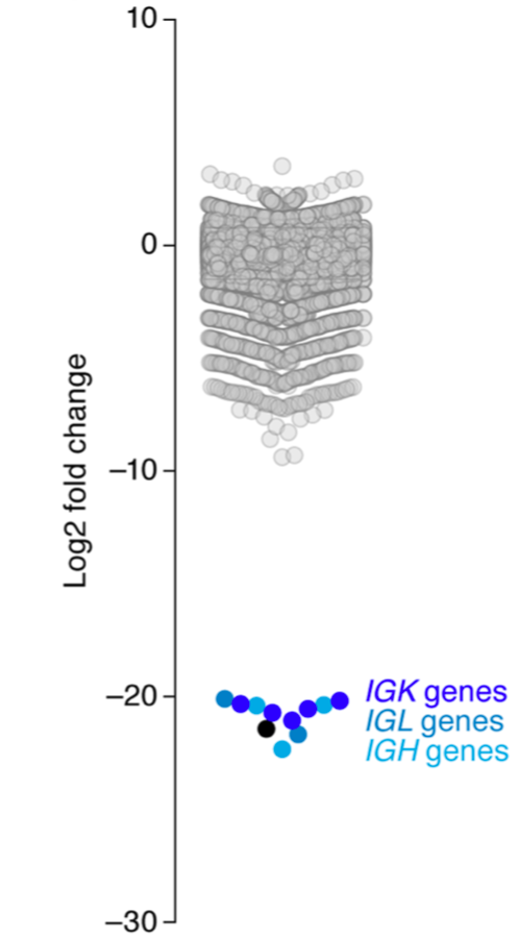
Transcriptome analysis identified human genes differentially expressed in iciHHV6 individuals. Genes encoding immunoglobulins were decreased in the colon of iciHHV6 individuals, suggesting that iciHHV-6 may affect human health maintenance.
Investigators at the University of Tokyo performed global transcriptome analysis using datasets obtained from various tissues in the Genotype-Tissue Expression (GTEx) database to study the relationship between genetic variants and gene expression in multiple tissues.
The authors theorized that since exogenous HHV-6B causes roseola and HHV-6A infection has a potent impact on factors such as transcription factor E2F1, that inherited chromosomal integration might also affect human immunological homeostasis.
Of 547 individuals studied, 2 were positive for iciHHV-6A and 4 were positive for ciHHV-6B. Transcriptional expression of iciHHV-6A/B was detectable in all six individuals, but expression was sporadic. For example, both iciHHV6A/B were highly expressed in the testis, but only one individual had a strong expression of iciHHV6A in the brain. They next analyzed the effect of iciHHV6 expression on human gene expression. Genes distinctly modulated by ciHHV-6A/B were identified in the thyroid and colon and appeared to be unrelated to the level of iciHHV-6 expression in tissue.
The authors were intrigued by the fact that “exogenous” HHV-6 infection induces immunosuppression (Dagna 2013), and hypogammaglobulinemia (Kano 2004) just as gene modulation induced by ciHHVV-6A/B appeared to suppress the production of immunoglobulins, leading to possible immune deficiencies.
Previously, a group at University of Washington reported that iciHHV-6A/B individuals showed increased expression of two HHV-6 genes, U90 (IE-1) and U100, and that U90 expression translates to an increase in antigen-specific antibody response in iciHHV-6 patients vs controls. (Peddu 2019).
Read the full text: Kumata 2020

